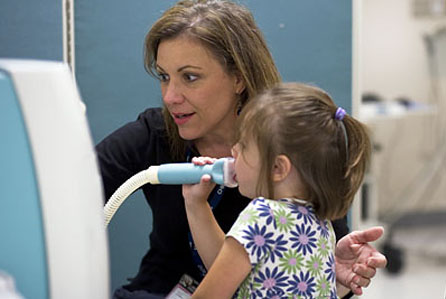
Common Respiratory Conditions within Premature Babies
Premature babies are infants that are born prior to week 37 of pregnancy, or full-term babies that weigh very low. Whenever children are born early or small, they are normally put in units of neonatal intensive care where nurses and doctors can take care of them by monitoring their overall progress and treating any problems that might come about, such as respiratory conditions.
Immature lungs happen to be a very common problem within a lot of premature babies. Because of their early birth or low weight, the lungs of these babies have not had the chance to develop enough for proper breathing outside of the mother’s womb. Several respiratory conditions that could occur from immature infant lungs include respiratory distress syndrome, bronchopulmonary dysplasia, and transient tachypnea.
Respiratory distress syndrome refers to harsh and irregular breathing caused by lack of surfactants that usually prevent the collapse of the lungs. If babies suffer from such respiratory conditions, doctors can make use of several methods of treatment. Supplemental oxygen can be supplied via oxygen hoods or respirators, for example, or continuous airway pressure can be used to stabilize infant breathing. Children might also have to spend time within endotracheal incubators. In more severe cases, doctors might have to use surfactant agents to stop the baby’s lungs from completely collapsing.
Bronchopulmonary dysplasia refers to serious respiratory conditions that children suffer from when lung deterioration signs appear. Whenever premature babies require long-term ventilators, their immature lungs might not have the power to survive a respirator’s constant pressure. Babies who need respirators for more than 28 days are at the highest risk of suffering from bronchopulmonary dysplasia. After the respirator gets removed, the condition should improve, though the overall time of recovery differs from one baby to the next.
Transient tachypnea refers to rapid and shallow breathing that premature babies experience and is usually only temporary. Such respiratory conditions could also happen to full-term babies.
Along with the respiratory conditions that are related to immature infant lungs, premature babies might also suffer from bradycardia or apnea, which usually appear together. Bradycardia happens when the heart rate starts to drop due to apnea, while apnea happens when premature babies completely stop breathing for several seconds at a time. Physical contact with babies can normally make them breathe, causing these respiratory conditions to subside.
Premature babies also run higher risks of getting pneumonia than full-term babies. The cause of this lung infection would be every other respiratory condition that small babies come across. Antibiotics can treat pneumonia, as can intubation and supplemental oxygen use. If unchecked, however, this infection could turn into a more serious and fatal condition, such as sepsis or meningitis.
Although there are a lot of different medial conditions that affect premature babies, respiratory conditions happen to be the most common. Because of this, it would be important to send premature babies to nurses and doctors who can treat these respiratory conditions immediately and start effective programs of treatment right away. Early detection can make sure that premature babies grow to become healthy and normal children.
